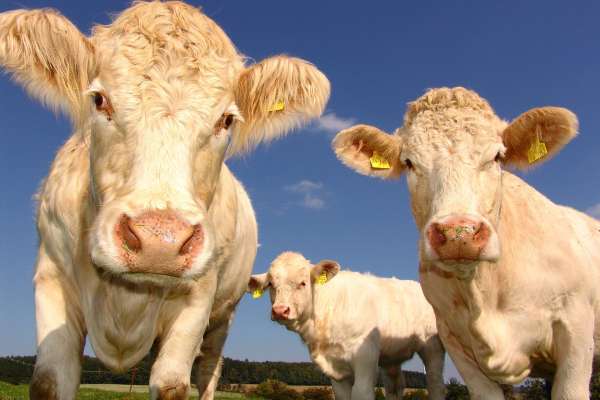Published on the 05/09/2018 | Written by Heather Wright

New Agritech NZ deal offers access to millions in Series A funding…
New Zealand’s agritech run in the United States has continued with Agritech New Zealand signing a deal with Farm2050 – a collective of agri-venture firms and agribusinesses launched by Google executive chairman Eric Schmidt.
The deal, signed in the US on Saturday, sees New Zealand become Farm2050’s first country partner – a position that was expected to go to Israel or Holland.
More importantly for New Zealand’s emerging and established agritech companies, the deal opens the doors to potentially millions of dollars of investment while keeping New Zealand IP and jobs in New Zealand.
“There’s no reason why we shouldn’t be exporting a lot more.”
Peter Wren-Hilton, Agritech New Zealand executive director, told iStart that Farm2050, which has a stated goal of supporting agtech to address the global food challenge, won’t be investing in Kiwi companies at the seed stage, instead looking to provide potential Series A capital in the NZ$3 million to NZ$10 million range – an area of investment the New Zealand market currently lacks.
“While the Western Growers deal [signed last week] gives access to farmers and growers, and Western Growers’ Technology and Innovation Centre, Farm2050 provides access to connected capital,” Wren-Hilton says.
Venture partners in Farm2050 include Schmidt’s Innovation Endeavors, Finistere Ventures, Syngenta Ventures and Rabobank.
Wren-Hilton says Farm2050 will provide Kiwi agritech businesses with the opportunity to engage with major global agribusinesses, including Bayer Crop Science, Corteva Agriscience, Mars and PepsiCo, on significant new innovation-driven initiatives, in a move that will increase visibility of emerging agritech businesses seeking capital. Along with venture capital, Farm2050’s offerings include prototyping facilities, manufacturing capacity and distribution channels.
Wren-Hilton says the growth opportunity for the local agritech market is significant.
Last year New Zealand exported NZ$1.3 billion of agritech products and services. Israel, in comparison, exported nine times that.
“That’s a huge difference and everything I know about the New Zealand sector tells me we stack up well and there’s not reason we shouldn’t close the gap.”
A key area where New Zealand has the edge is in robotics and automation. Hank Giclas, Western Growers’ senior vice president of science technology and strategic planning, last week said on US TV that New Zealand has an edge over the US in robotics.
In recent months at least three big agritech venture deals have been completed in New Zealand, with Robotics Plus receiving investment from Yamaha Motor for its agricultural automation solutions, which includes post-harvest robotics for packing and orchard robotics for harvesting and pollination, along with autonomous agricultural vehicles, and Halter raising NZ$8 million for its GPS-enabled intelligent neck bands to monitor cow health and control how they are moved around farms.
Palmerston’s BioLumic, which has created an ultraviolet crop yield enhancement system, has also closed NZ$5 million in Series A financing.
All three investments were led by US venture capitalists.
“In the next two to three years we will see a lot more done in that range,” Wren-Hilton says.
He adds that while US investment might flow into the New Zealand agritech sector, it doesn’t mean IP will be going offshore.
“Unlike fintech and some other areas where a company is made up of people in front of computers that can be lifted up and put down in San Francisco or somewhere else, if an agritech company is working on technology in Kiwi fruit orchards, you could transplant the people, but not the orchards, so there is a much greater change for agritech to stay in New Zealand.”



























